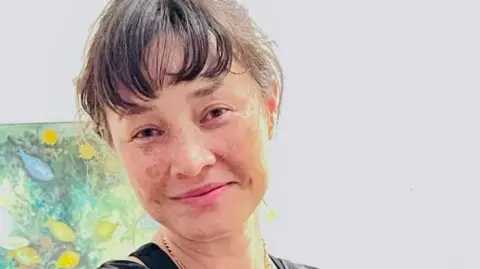The tragic events at Westfield Bondi Junction, where a mass killer took the lives of six people, have led Australia to confront significant lapses within its mental health care system. During the recent five-week coronial inquest, families of the victims, led by Elizabeth Young, shared heart-wrenching testimonies about the irreversible impact of the attack on their lives. Young’s daughter, Jade, was one of the victims killed in broad daylight, and the emotional fallout of such violence has left her family shattered.
The inquiry detailed how Joel Cauchi, the perpetrator, managed to enter the bustling shopping center on April 13, armed with a 30-centimeter knife. Over a three-minute rampage, he claimed the lives of six individuals, injuring ten others, including an infant. The police arrived promptly, with Officer Amy Scott ultimately shooting and killing Cauchi before he could inflict any more harm. This horrific incident raised alarm bells throughout the nation, as mass murders are exceedingly rare in Australia.
The inquest focused on several key elements surrounding the lead-up to the attack, particularly Cauchi’s extensive history of mental illness. Diagnosed with schizophrenia as a teenager, his care over the years highlighted a series of failures in the mental health system. After two decades of treatment, Cauchi had stopped taking his antipsychotic medication. The inquest revealed that no proper transitions to alternative medications were made, which could have substantially mitigated his deteriorating mental state.
Cauchi’s interactions with both law enforcement and mental health professionals were scrutinized during the inquiry. Despite troubling behavior and red flags, he was never deemed a significant threat to himself or others. Throughout 2020, for instance, he was in contact with police multiple times, often for erratic behaviors, yet authorities could not detain him without clear evidence that he posed a risk. This lack of immediate intervention in conjunction with the tragic oversight resulted in dire consequences.
The emotional sentiments shared by families during the inquiry resonated deeply within the community. Elizabeth Young emphasized the long-standing neglect of the mental health system, attributing her daughter’s murder to systemic failures that allowed Cauchi to remain unmedicated and volatile. For her, Saturdays hold a weight of tragedy, serving as a painful reminder of her daughter’s violent fate.
A tense and highly charged atmosphere surrounded the inquiry as families highlighted the urgency of reform in mental health services across the country. The coronial hearings aimed not to assign blame but rather to identify ways to prevent future tragedies. NSW State Coroner Teresa O’Sullivan articulated a hope that the inquiry would lead to concrete recommendations that could make a difference in preserving lives in the future.
In summary, the events at Bondi Junction raised complex questions surrounding the interplay between mental health management and societal responsibility. As the nation grapples with the aftermath, the emphasis on addressing mental health system shortcomings becomes paramount. With the recommendations from the inquest expected to be delivered soon, families hope for transformative changes that align with their painful experiences and the lessons learned from this catastrophic event. Through their dedication to seeking justice for their loved ones, the survivors aim for a future where no family has to experience such a devastating loss again.



